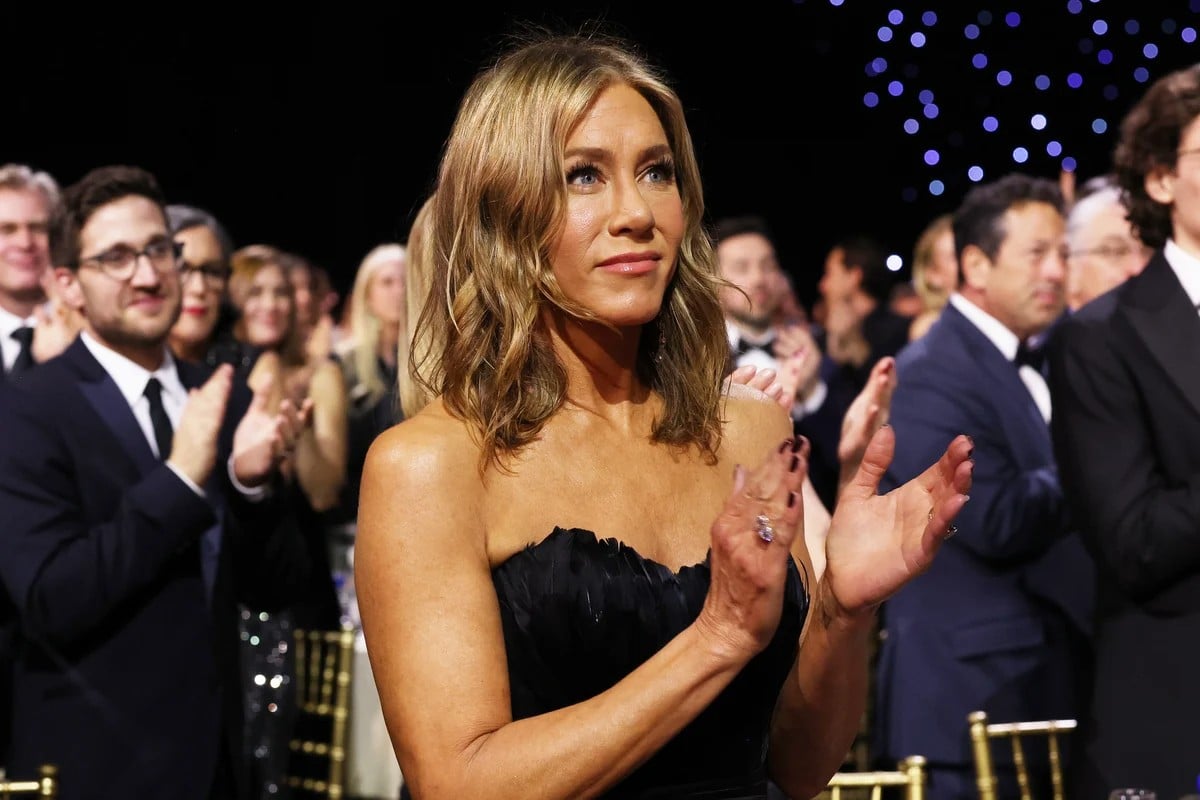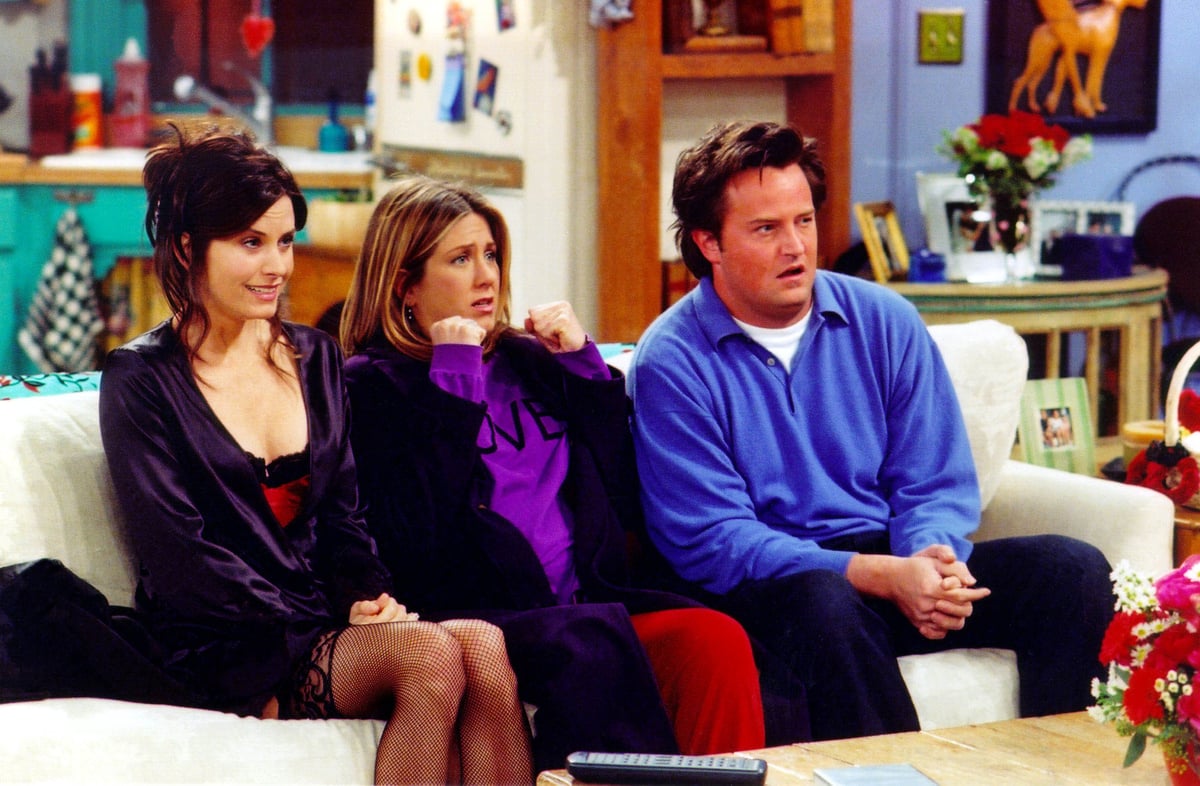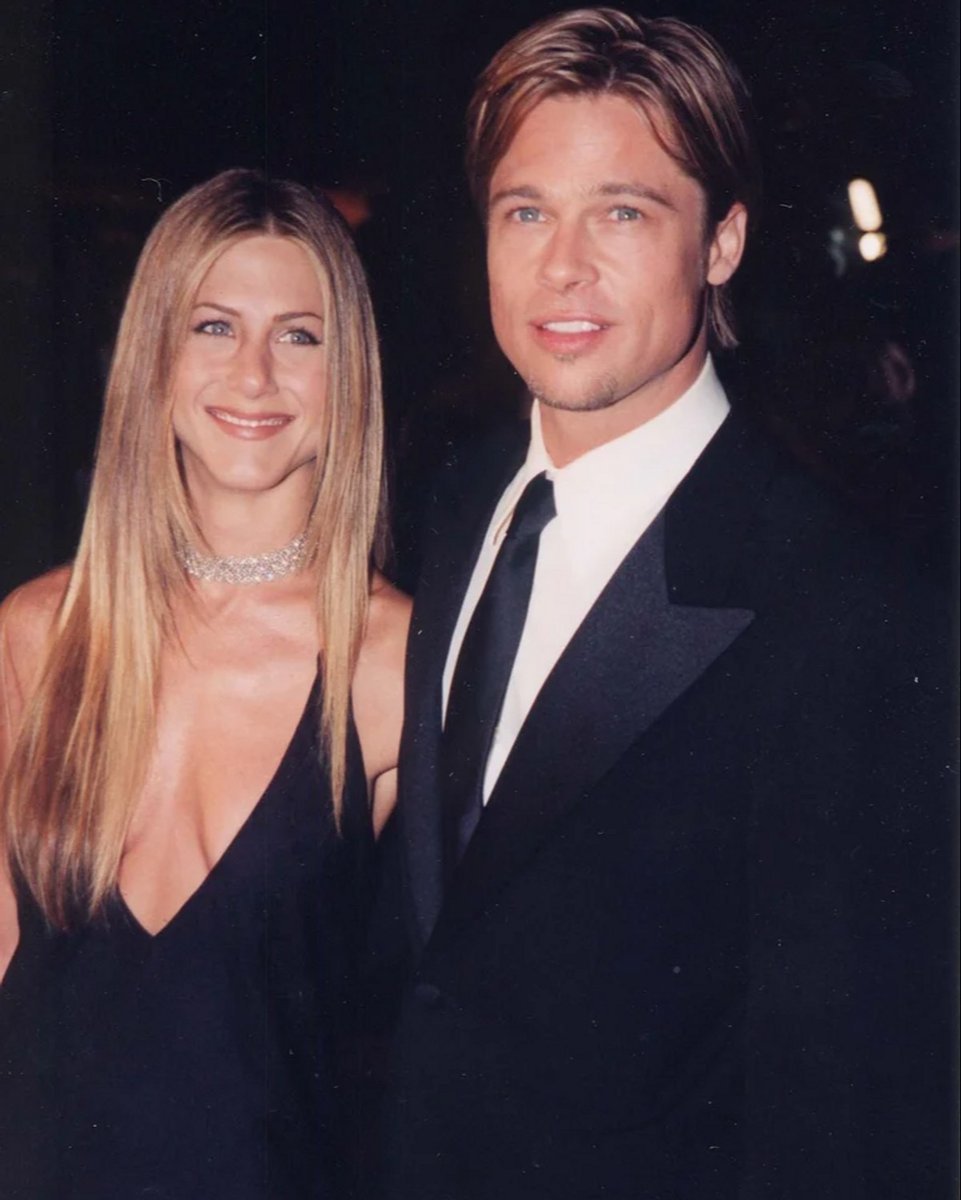
If you want to support independent women's media, become a Mamamia subscriber. Get an all-access pass to everything we make, including exclusive podcasts, articles, videos and our exercise app, MOVE.
The 2000s were dominated, from my memory at least, by three things; statement necklaces, dolphin girl memorabilia (confession: I held onto this trend longer than I should've), and a bizarre fascination with Jennifer Aniston's uterus.
Aniston was Hollywood's golden girl, married to the golden boy Brad Pitt.
But, despite her success and the mega-hit that was Friends, which saw her earning $1 million per episode in its last two seasons — one word followed her around like a bad smell; pregnant.
 Friends ran for 10 seasons, and wrapped in 2004. Image: Getty.
Friends ran for 10 seasons, and wrapped in 2004. Image: Getty.































































































